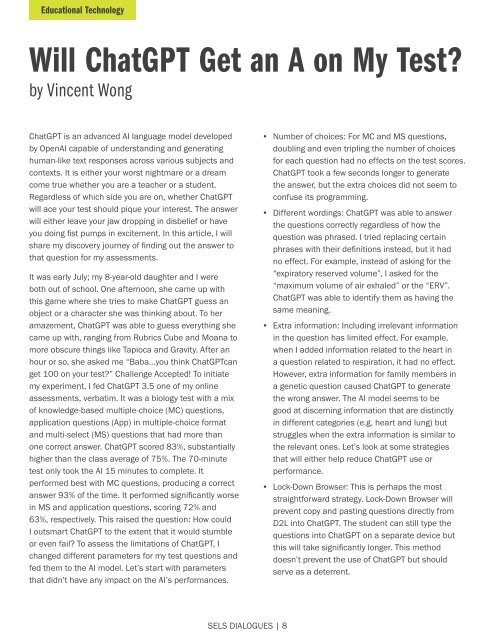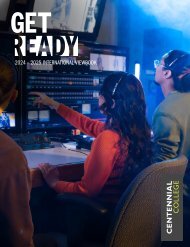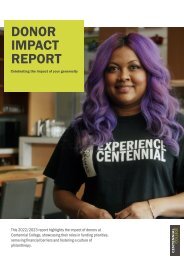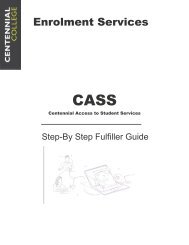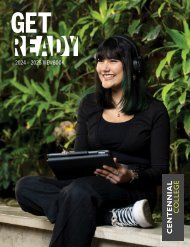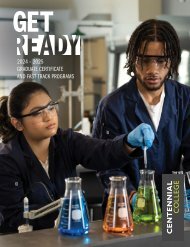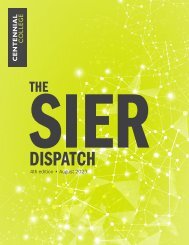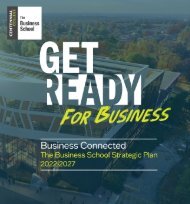SELS Dialogues Journal Volume 3 Issue 1
A diverse collection of articles, each offering a unique perspective and contributing to the ever-expanding landscape of knowledge and creativity.
A diverse collection of articles, each offering a unique perspective and contributing to the ever-expanding landscape of knowledge and creativity.
Create successful ePaper yourself
Turn your PDF publications into a flip-book with our unique Google optimized e-Paper software.
Educational Technology<br />
Will ChatGPT Get an A on My Test?<br />
by Vincent Wong<br />
ChatGPT is an advanced AI language model developed<br />
by OpenAI capable of understanding and generating<br />
human-like text responses across various subjects and<br />
contexts. It is either your worst nightmare or a dream<br />
come true whether you are a teacher or a student.<br />
Regardless of which side you are on, whether ChatGPT<br />
will ace your test should pique your interest. The answer<br />
will either leave your jaw dropping in disbelief or have<br />
you doing fist pumps in excitement. In this article, I will<br />
share my discovery journey of finding out the answer to<br />
that question for my assessments.<br />
It was early July; my 8-year-old daughter and I were<br />
both out of school. One afternoon, she came up with<br />
this game where she tries to make ChatGPT guess an<br />
object or a character she was thinking about. To her<br />
amazement, ChatGPT was able to guess everything she<br />
came up with, ranging from Rubrics Cube and Moana to<br />
more obscure things like Tapioca and Gravity. After an<br />
hour or so, she asked me “Baba…you think ChatGPTcan<br />
get 100 on your test?” Challenge Accepted! To initiate<br />
my experiment, I fed ChatGPT 3.5 one of my online<br />
assessments, verbatim. It was a biology test with a mix<br />
of knowledge-based multiple-choice (MC) questions,<br />
application questions (App) in multiple-choice format<br />
and multi-select (MS) questions that had more than<br />
one correct answer. ChatGPT scored 83%, substantially<br />
higher than the class average of 75%. The 70-minute<br />
test only took the AI 15 minutes to complete. It<br />
performed best with MC questions, producing a correct<br />
answer 93% of the time. It performed significantly worse<br />
in MS and application questions, scoring 72% and<br />
63%, respectively. This raised the question: How could<br />
I outsmart ChatGPT to the extent that it would stumble<br />
or even fail? To assess the limitations of ChatGPT, I<br />
changed different parameters for my test questions and<br />
fed them to the AI model. Let’s start with parameters<br />
that didn’t have any impact on the AI’s performances.<br />
• Number of choices: For MC and MS questions,<br />
doubling and even tripling the number of choices<br />
for each question had no effects on the test scores.<br />
ChatGPT took a few seconds longer to generate<br />
the answer, but the extra choices did not seem to<br />
confuse its programming.<br />
• Different wordings: ChatGPT was able to answer<br />
the questions correctly regardless of how the<br />
question was phrased. I tried replacing certain<br />
phrases with their definitions instead, but it had<br />
no effect. For example, instead of asking for the<br />
“expiratory reserved volume”, I asked for the<br />
“maximum volume of air exhaled” or the “ERV”.<br />
ChatGPT was able to identify them as having the<br />
same meaning.<br />
• Extra information: Including irrelevant information<br />
in the question has limited effect. For example,<br />
when I added information related to the heart in<br />
a question related to respiration, it had no effect.<br />
However, extra information for family members in<br />
a genetic question caused ChatGPT to generate<br />
the wrong answer. The AI model seems to be<br />
good at discerning information that are distinctly<br />
in different categories (e.g. heart and lung) but<br />
struggles when the extra information is similar to<br />
the relevant ones. Let’s look at some strategies<br />
that will either help reduce ChatGPT use or<br />
performance.<br />
• Lock-Down Browser: This is perhaps the most<br />
straightforward strategy. Lock-Down Browser will<br />
prevent copy and pasting questions directly from<br />
D2L into ChatGPT. The student can still type the<br />
questions into ChatGPT on a separate device but<br />
this will take significantly longer. This method<br />
doesn’t prevent the use of ChatGPT but should<br />
serve as a deterrent.<br />
<strong>SELS</strong> DIALOGUES | 8


